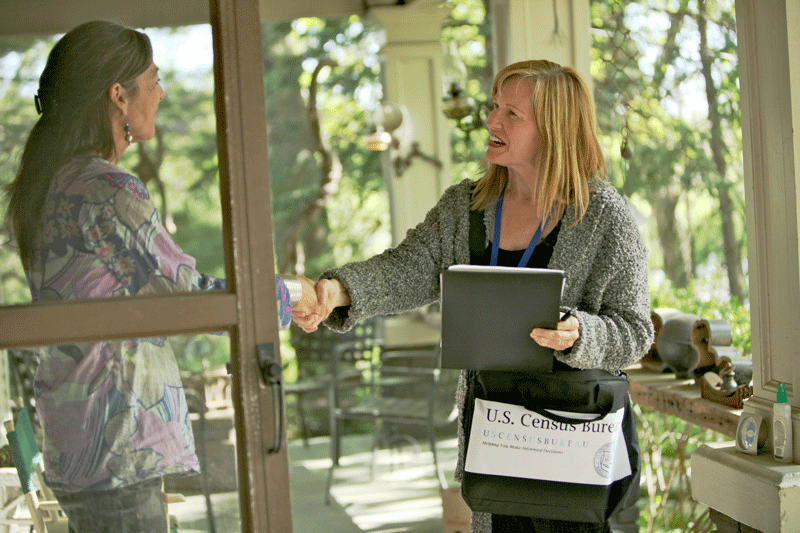Every Person, Counted
The 2020 census is coming up. Excited? You should be. According to the Constitution, the federal government must count up how many people are living in the U.S. once every decade. That information is then used to make critical determinations about how much federal money is given to communities, as well as each state’s share of congressional seats and Electoral College votes, for the next ten years. But even so, not everyone participates in the census. Here, Election Central takes a closer look at why this is, as well as steps the federal government is taking to try to improve this number.
Speaking Your Language
One major problem the Census Bureau has historically faced is that not everyone speaks English as a first language. The 2020 census will be more widely accessible than any census before. Why? For the first time ever, responses will be collected in Arabic along with six other new language options, for a total lineup of thirteen that includes Korean, Russian, French, and Spanish. In addition, video and printed guides will be available in 59 languages other than English.
To decide which languages would be added, the Census Bureau surveyed the roughly 60,000 U.S. households with limited English skills. For example, it’s estimated that over a million people in the U.S. currently speak Arabic as their primary language. It is hoped that adding the most popularly-spoken non-English languages will help more people than ever to access the survey.
This may not be enough, however. A test run of the census–held in Providence County, Rhode Island–yielded a surprisingly low turnout, especially among the county’s immigrant population.
A Question of Citizenship
At least part of the reason for the concern over low turnout has to do with the fact that President Trump proposed adding a controversial new question to the 2020 census: “Is this person a citizen of the United States?” Critics argue that this question might keep noncitizens from participating in the census out of fear that their answers will cause them to face discrimination or even deportation. In cities such as Miami, Florida, or Los Angeles, California–in which more than a third of the population is foreign-born–this could lead to severe undercounting.
The Supreme Court is expected to rule on the issue in June.
Changing Country, Changing Census
The census is also changing in other ways to reflect the changing values of the country. For example, it’s no longer enough just to mark “white” or “black” as your race on the form; under each, you must also write in your origins, such as German, Jamaican, etc. Also, for the first time, the census will include a question that asks whether a household is headed up by a same-sex or opposite-sex couple. This is in order to give the federal government more accurate information about the number of same-sex couples living in the U.S. today, although this too has been criticized as a violation of privacy.



